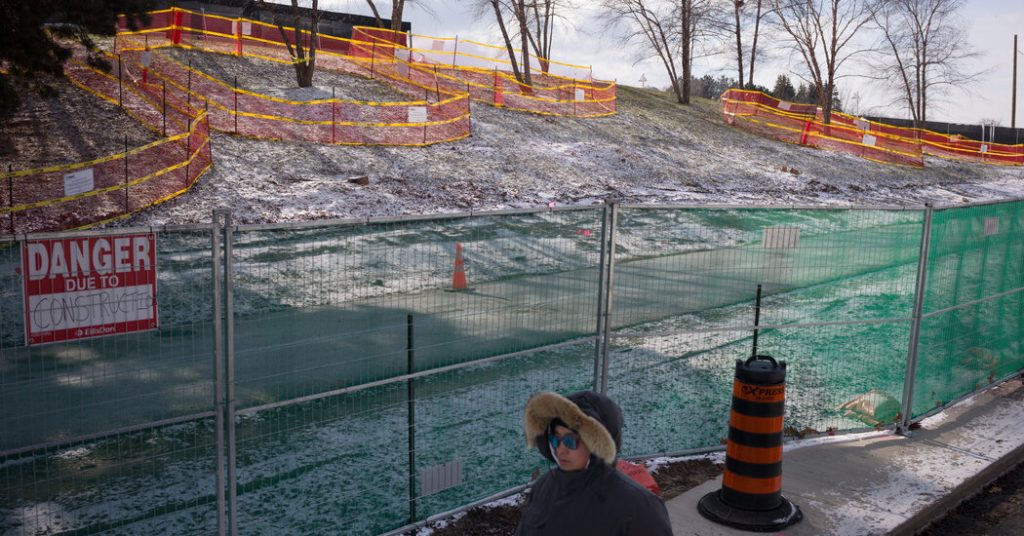An informal swimming group that congregated year round at Toronto’s only downtown beach were left unable to continue their icy ritual after a steel mesh construction fence cut off access to a pedestrian bridge leading to West Island, a part of Ontario Place. The island is being turned over to an Austrian spa developer under a 95-year lease to build a large “well-being oasis” with hot and cold baths as well as other “water relaxation facilities.” The privatization of the island has prompted criticism from local politicians and park users who believe that the existing public space should be built up rather than built over.
Ontario Place opened in 1971 as a response to Expo 67 and featured exhibition halls, a geodesic dome housing an IMAX cinema, playgrounds, a water park, a marina, restaurants, and a concert amphitheater. The park was a major attraction during its early years but struggled financially, leading to its eventual closure in 2010. Doug Ford, Ontario’s premier, has pushed for the development of West Island, resulting in a controversial plan to build a commercial spa by Therme, a Vienna-based company. The proposal has faced opposition from the City of Toronto due to the size, scale, and location of the project.
The spa at Ontario Place will consume most of West Island and include an indoor family water park. The proposal has been criticized for removing the existing beach on the island and limiting the outdoor public space to green space on the spa’s roof and a path around the spa. The City of Toronto has raised concerns about the development, citing the potential negative impact on the existing pavilions and historical landmarks. Additionally, plans for an underground parking garage have been seen as contradictory to Toronto’s efforts to prioritize public transit.
Toronto Mayor Olivia Chow expressed disappointment in the plans for the spa and the impact it will have on the waterfront. The province responded to Toronto’s criticism by removing the city’s authority over the project and expropriating land for the parking garage. Supporters of the spa project argue that it will make Ontario Place a more inviting destination, particularly in the winter months. The chairman and chief executive of Therme, Robert Hanea, defended the project by highlighting the well-being infrastructure it would bring to Toronto, providing access to families who may not have other means of recreation.
The backlash against the spa project has resulted in some changes, including a reduction in the spa’s maximum height and plans to increase West Island’s size to provide more public space. A citizen’s group has taken legal action to challenge the project, citing concerns about the lack of an environmental assessment. The province argues that a law passed by Mr. Ford eliminates the need for such a review. Critics of the project believe that the proposed development would put public space behind a paywall, limiting access to those who cannot afford to visit the spa. The future of Ontario Place and West Island remains uncertain as the debate over the spa project continues.


